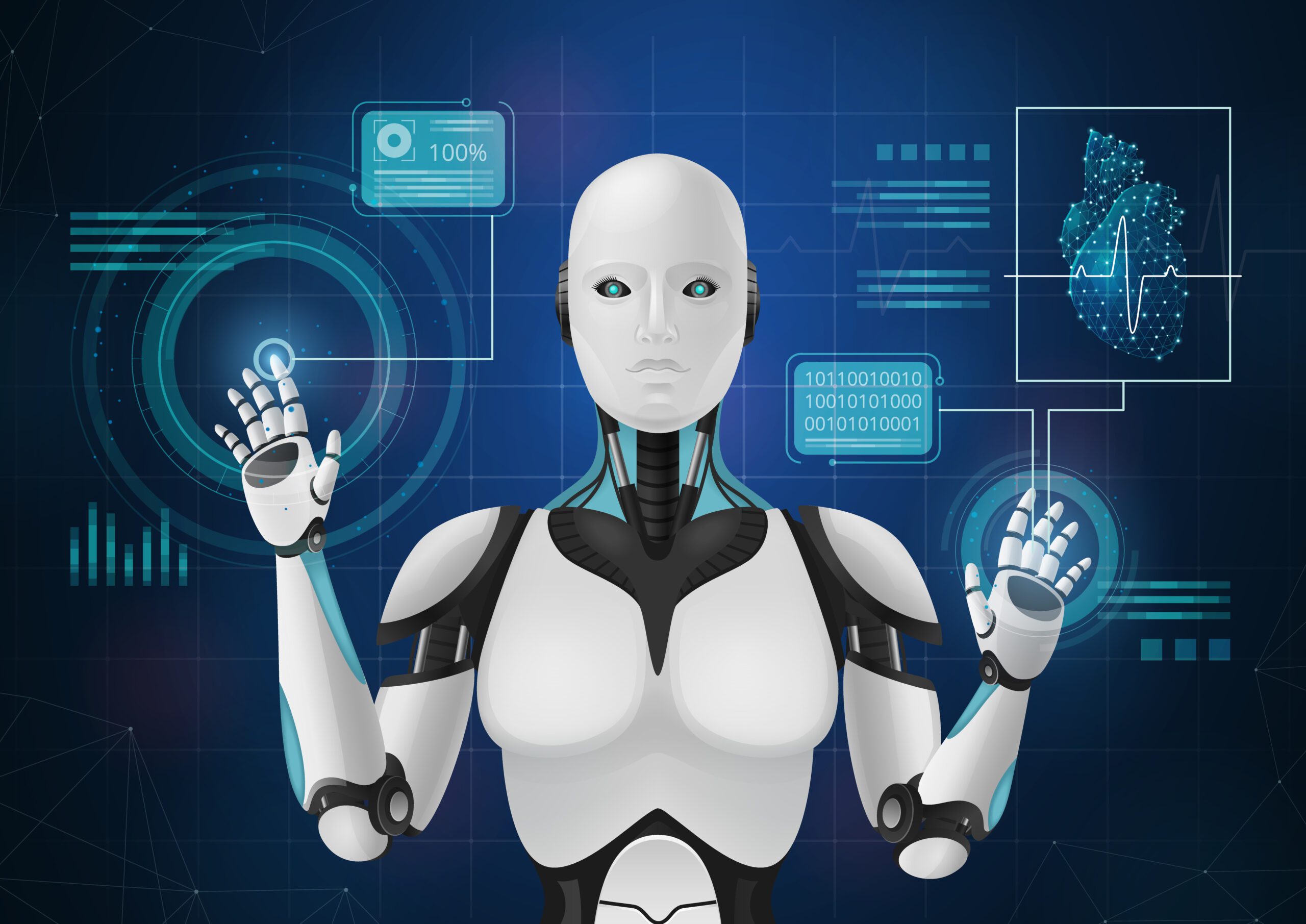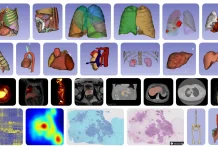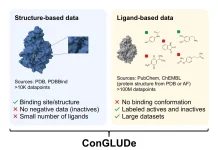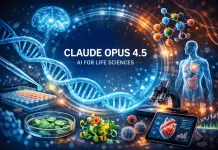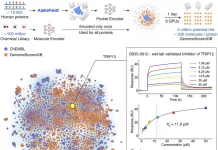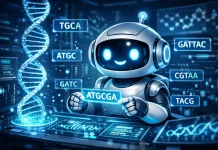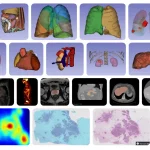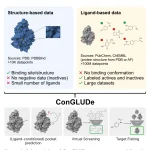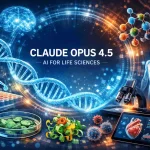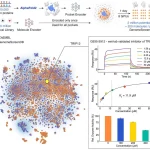Top 10 Applications of Artificial Intelligence in Healthcare in 2022 and Beyond
The healthcare industry has always been one of the leaders in using technology to make lives better and more efficient. Artificial intelligence (AI) in healthcare has started to enter the market, but it’s not just used as an additional tool — it’s transforming the entire industry, making it easier and faster to diagnose patients, read MRIs, and even predict disease outbreaks before they happen.
AI has been described as the “fourth industrial revolution” with transformative and global implications, including healthcare, public health, and global health. AI approaches hold promise for improving health systems worldwide, as well as individual and population health outcomes.
Artificial intelligence is stretching its way in each and every industry. From your home appliances, Alexa, Siri, Smart Home, Smartphone, automated Smart Car, to the Finance department, Insurance Company, Healthcare, Travel Industry, etc.
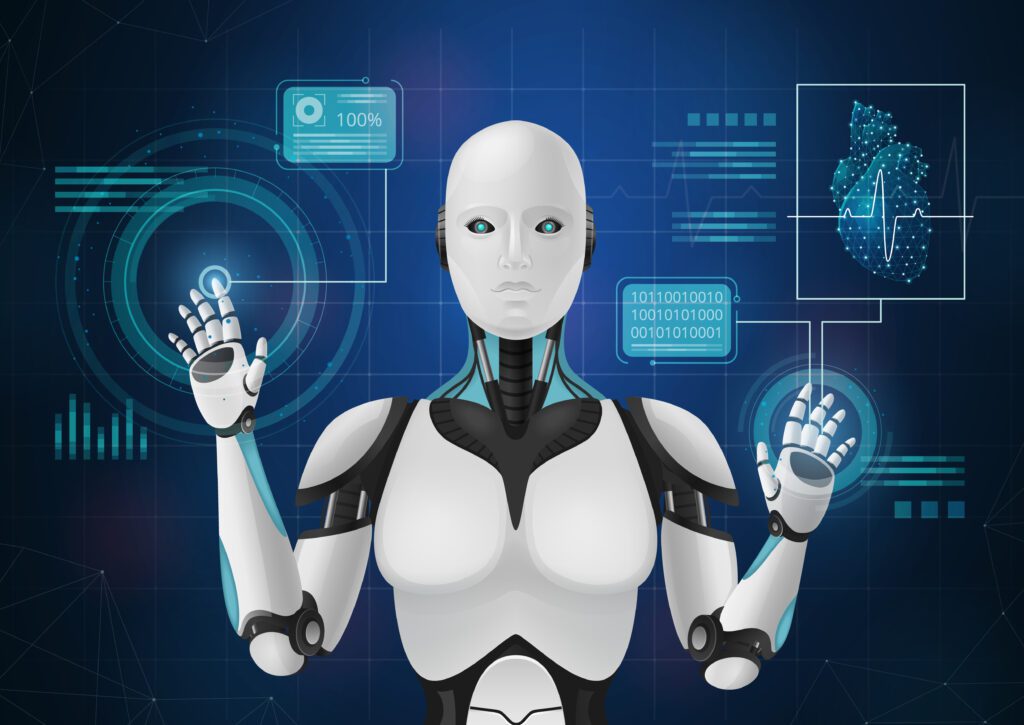
AI is leveraging the industry minutely, from cancer treatments, specific scans, image diagnosis, and radiotherapy, to the risk assessment of chronic diseases. Let’s quickly go through some of the examples of applications of artificial intelligence in the healthcare industry.
What is AI?
Artificial intelligence (AI) is a broad field of computer science concerned with developing intelligent machines that can accomplish activities that would generally need human intelligence. The ability to visually interpret images, understand voice, translate language, and learn from and adapt to new knowledge are examples of such behaviors.
AI, as a subject of study, can use a variety of strategies to accomplish this. For example, machine learning enables algorithms to generate predictions and solve issues based on enormous volumes of data without having to be explicitly coded. Deep learning is a subset of machine learning which further uses multiple layers of artificial neural networks to solve complex problems from unstructured data, considerably like the human brain.
AI technologies can perform a wide array of functions, such as aiding in diagnosis generation and therapy selection, making risk predictions and stratifying disease, reducing medical errors, and improving productivity.
Artificial Intelligence in Healthcare
Speaking particularly of the healthcare industry, things have changed with the commencement of AI. Since the process of vaccine generation used to take years, today’s healthcare industry is coming up with new inventions and discoveries every month, every day with the help of Artificial Intelligence, Automation, Deep Learning, and Machine Learning. This sector is now experiencing rapid integration due to the advancement in AI.
AI is leveraging the industry minutely, from cancer treatments, specific scans, image diagnosis, and radiotherapy, to the risk assessment of chronic diseases.
Artificial intelligence enables complex computations, analyses, and research breakthroughs that would otherwise be unattainable. In the real world, AI assists healthcare providers in saving time on administrative duties, allowing them to give more time for interacting with patients, making key discoveries, and ultimately providing better treatment than ever before.
Let’s see the 10 most important applications where artificial intelligence improves healthcare.
- Cancer Detection and Diagnosis
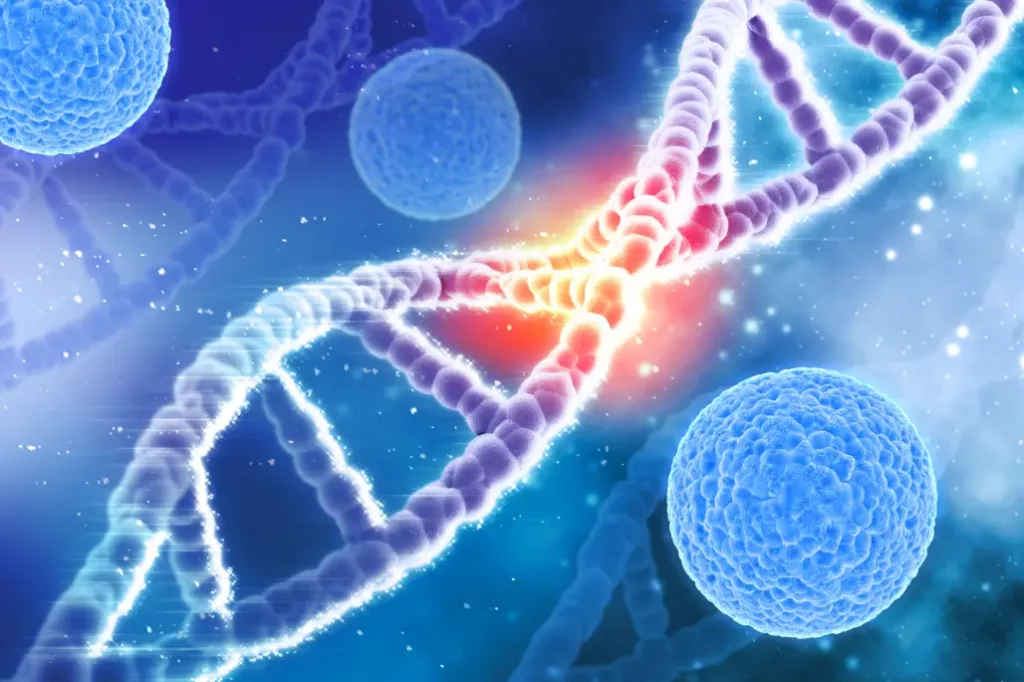
With the help of AI, cancer can be detected at an early stage before it becomes untreatable. Going by the old and traditional way, it would take pathologists a hectic procedure and tremendous time to reach out to a conclusion. By the way, cancer won’t stop expanding just because the results haven’t come yet. Wouldn’t it be a relief if it would say, “Hey, your checkup results haven’t come. Don’t worry, buddy I will stop expanding for you for the time being”. Well, that doesn’t happen. Deadly cancer doesn’t stop its growth, for anyone’s sake. PathAI offers AI Tools to make an accurate cancer diagnosis. Thereby reducing time and coming up to another level of accuracy. Early detection of cancer can really save thousands of lives.
Researchers at the University of North Carolina Lineberger Comprehensive Cancer Center utilized IBM Watson’s Genomic product to identify particular treatments for over 1,000 patients, according to Insider Intelligence. Big data analysis was used to assess therapy options for persons with malignancies that showed genetic anomalies.
- Drug and Vaccine Development
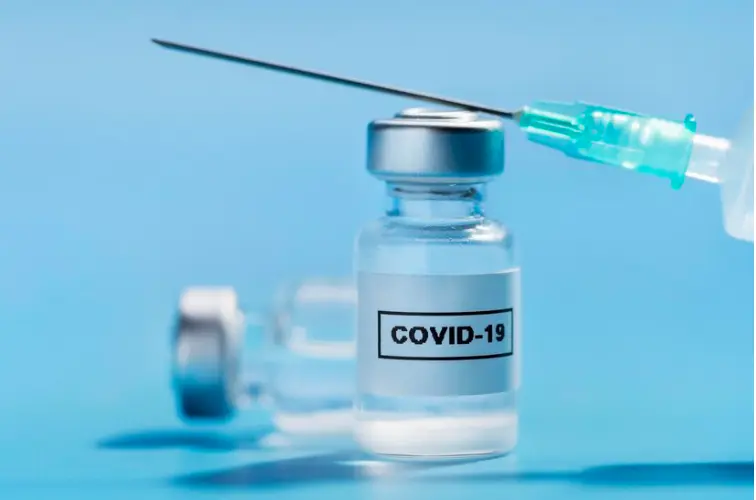
Remember the days when we all were in complete lockdown before the vaccination started? Thanks to the AI that detected similarities and differences, it did the genetic analysis and other medical and scientific procedures to develop the vaccine quickly. If AI were not there, it would have taken years to develop an effective vaccine. As viruses mutate, so does the procedure through AI modifies and comes up with specific treatment designs.
- Health Monitoring Gadgets
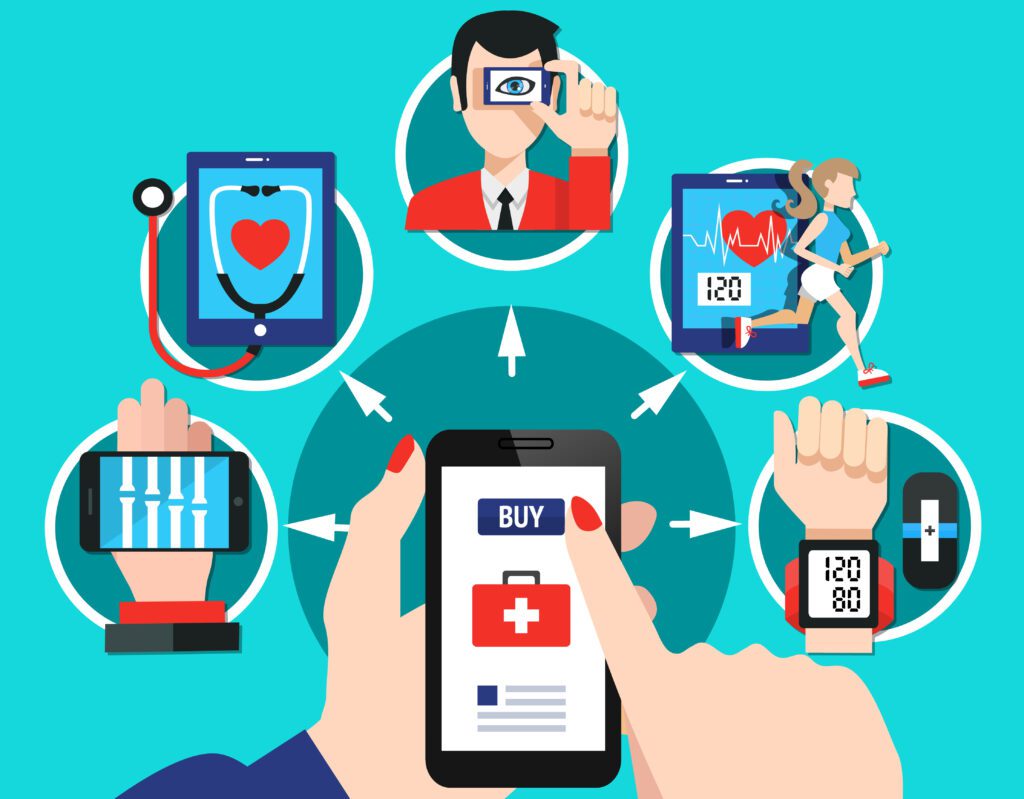
To reduce your sugar level, the doctor advised you to walk. Now how would you measure how much you should walk in a day? Or, in general, how would it be if you had your personal assistant all round the clock? That’s the revolution brought into the picture by AI. There have come many AI-powered gadgets on the market. Do you want to measure the steps you walked? Want to keep track of your blood pressure? Or would you like to know your heartbeat rate? Do you want to check your overall activity level and share it with your physician? Well, you can have a gadget for each or even a gadget for all mentioned. Wearable Health Trackers from Apple, FitBit, etc., would do the job for you.
- Digital Consultation

Gone are the days when you had to fix an appointment beforehand to meet the doctor, line up in a long queue, and wait hours for your turn to come. And gone are the pain when it’s nighttime, and you urgently need your doctor’s consultation. If you want to consult your doctor, go get his advice at your fingertips, on your smartphone, powered by AI, anytime you need. At least the basic advice and necessity are fulfilled through this procedure by AI. And you also get to know when it is that serious time when you really should get hospitalized, otherwise, be better at home and rest and get the consultation digitally.
- Precision Medicine

Precision medicine can be efficiently improved by incorporating artificial intelligence to more precisely apply treatment and preventative options based on an individual’s unique traits.
With advancements in technologies, AI, and deep learning, the diagnosis of any disease has become accurate. And accurate detection of disease helps in building proper medication procedures, thereby reducing the chances of being medically ill-treated. Just think of it, if you diagnosed a false disease, the medication would be according to that disease, then what would it result in the health of the person? An Artificial Intelligence system analyses the data, and reports of patients, do external research and clinical expertise, and then make a correct customized treatment path for the patient. AI in the industry reduces the chances of error and false detection and focuses on targeted treatment.
One of the most significant benefits of AI in precision medicine is the speed with which it can process data and produce actionable results.
Physicians are capable of making better clinical decisions about their patients with the help of Google’s Cloud Healthcare application programming interface (API), which includes CDS offerings and other AI solutions. Google Cloud AI uses machine learning to extract information from consumers’ electronic health records, allowing healthcare providers to make better clinical decisions.
- Task Automation
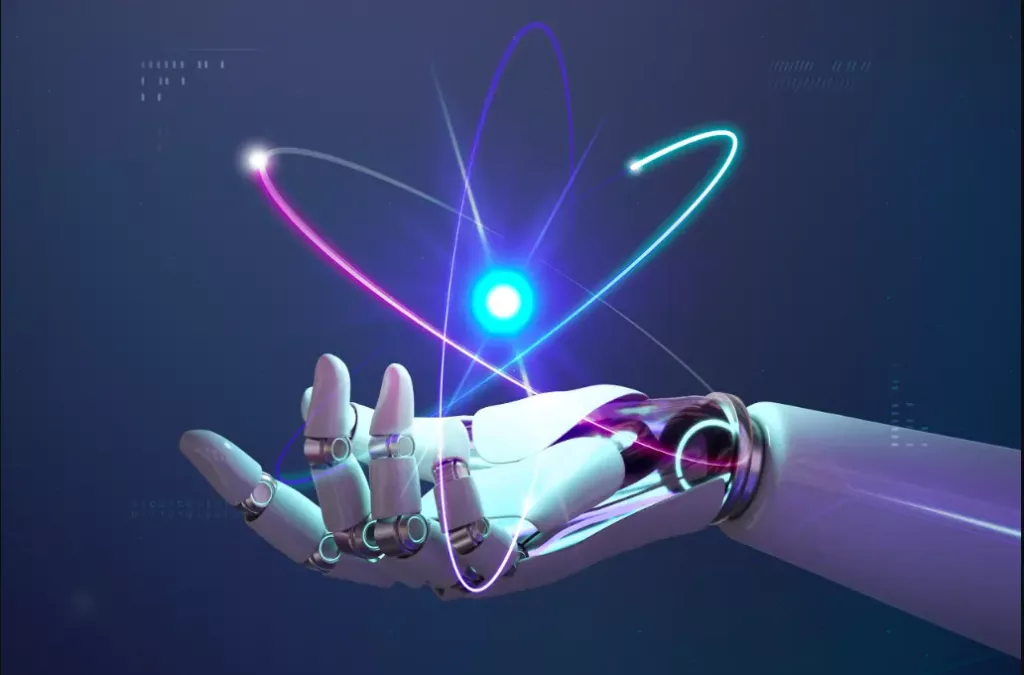
Don’t you sometimes think how nice it would be if someone else did your repetitive work? Then you would be focusing on more important tasks than that. Exactly the same happens when AI is automated in the healthcare industry. Data analysis in healthcare can both be overwhelming and time-consuming, especially in cardiology and radiology. Mundane works like Analysing tests, X-Rays, CT scans, data entry, etc., are all handled by ROBOTS powered by AI. Cardiologists and radiologists use robotic AI machine learning platforms to analyze hectic data.
- Managing Medical Records
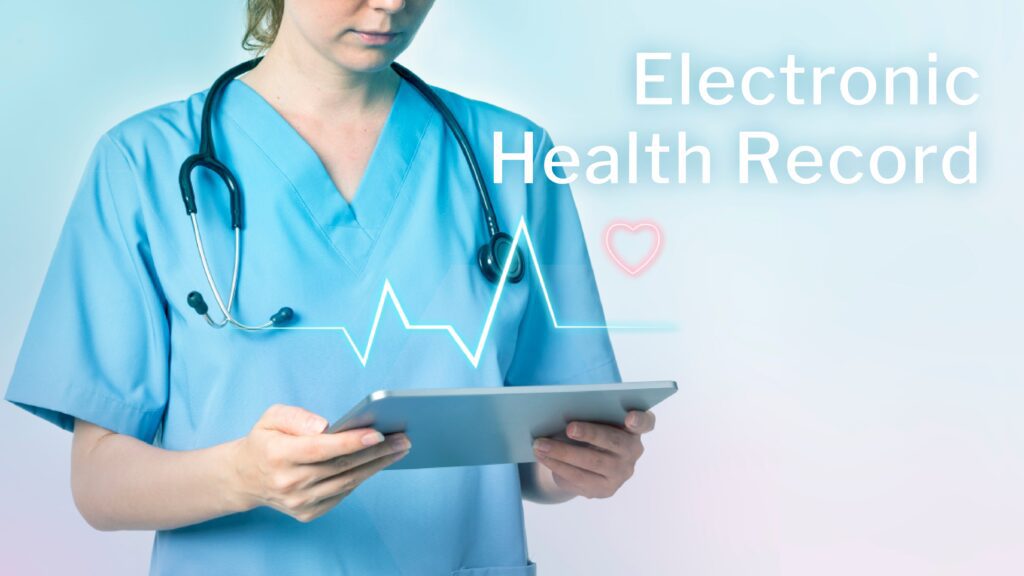
In healthcare, managing medical records is of utmost importance, for it is helpful in the development of proper diagnosis, new medicines, and drugs. The healthcare industry has a huge pile of data and information. And every single piece of data is of the utmost importance. The loss of a single piece of data can lead to the loss of millions of dollars. That’s why managing data is crucial. Then AI came to spread its charm. Data can be managed, stored, and re-formatted by AI. Tracing the most significant information and connecting to the required data when necessary has become easy, secure, and relatively faster than the times when it used to take years or so to reach data, information, and its conclusion. Scientists and doctors are taking the help of robots and AI automation for this hectic job.
- Robotic Surgery
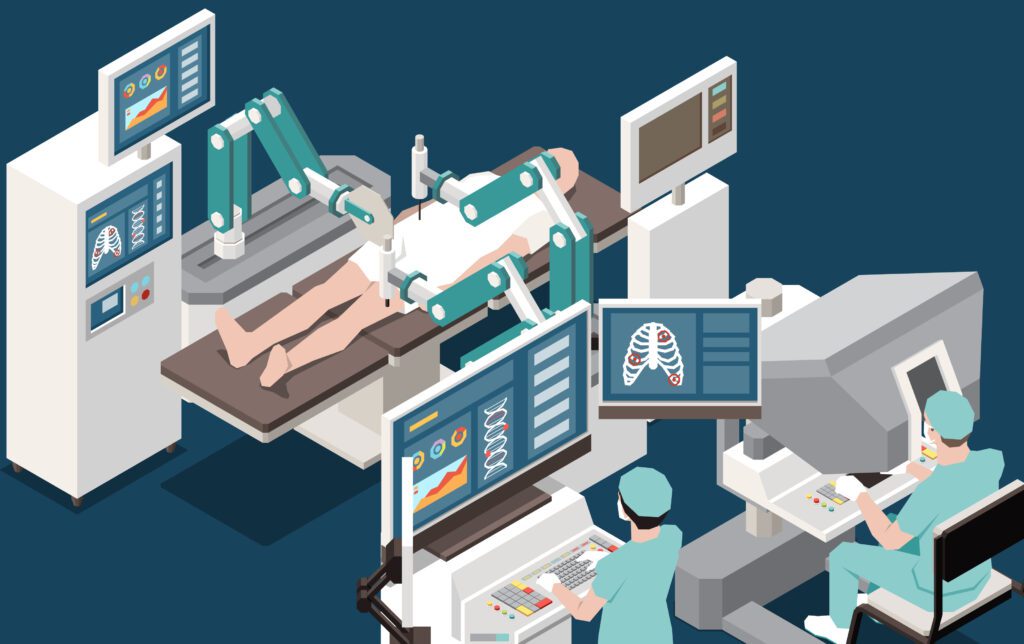
Today, science and technology have reached a level where robots can do surgeries. Yes, Robots have developed up to a level to implement Surgeries. Robots assist the Surgeries that require high precision, control, and flexibility. This way of implementing surgeries is getting popular in big housed hospitals. The old way of doing surgeries that could actually take a human intervention, time, and precision-less could lead to infections and take more prolonged recovery time. Today doctors can perform hectic surgeries like open-heart surgery sitting at the console of a computer controlling the mechanical arms of robots. Robots integrated with mechanical arms, cameras, and required surgical instruments are used. This augments the doctor’s knowledge, skills, and experience in creating new forms of surgery, thus exceeding human capabilities.
AI-implemented surgeries have lesser complications, faster recovery, and lesser pain for the patient.
- Automated Image Diagnosis
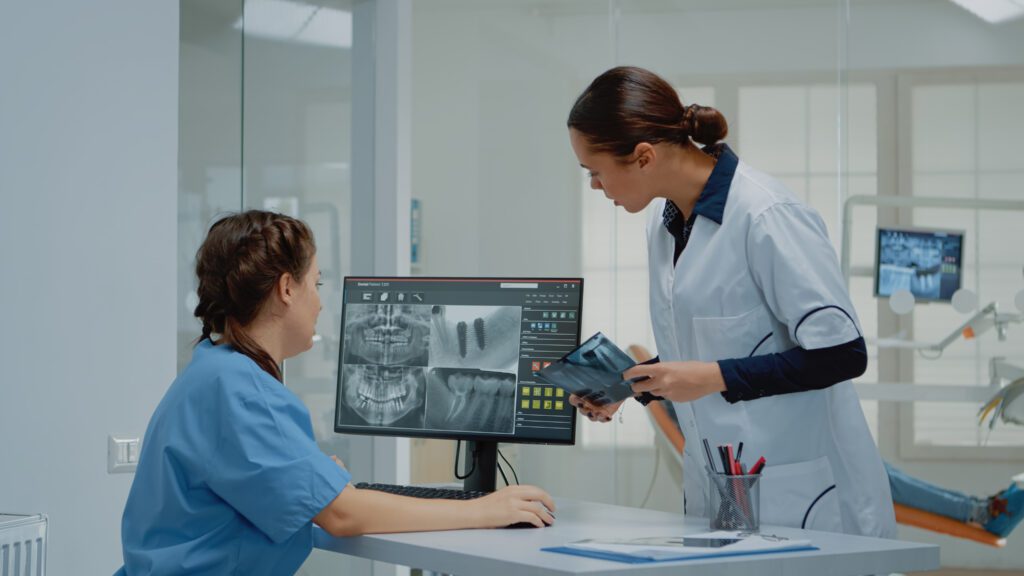
Diagnosis through images and scans becomes a hectic job when reports after reports pile up in medical. What if you have someone by your side to do this? By the way, image diagnosis is on its own a huge way to go on. What if that also is handled by your assistant? Well, AI offers to be a good assistant in this field. Image diagnosis becomes easy with the help of AI, deep learning, and machine learning. AI systems offer a quick way to read complex images, CT scans, and MRIs, equipping themselves with algorithms. This way, the performance gets improved, and it helps the doctor to diagnose the disease quickly and accurately.
Avicenna, an IBM software tool, can scan, analyze, and discover anomalies in medical imaging like CT scans and X-rays. It can even match the results to other information in a patient’s medical records to suggest the next course of action.
- AI Clinical Trials
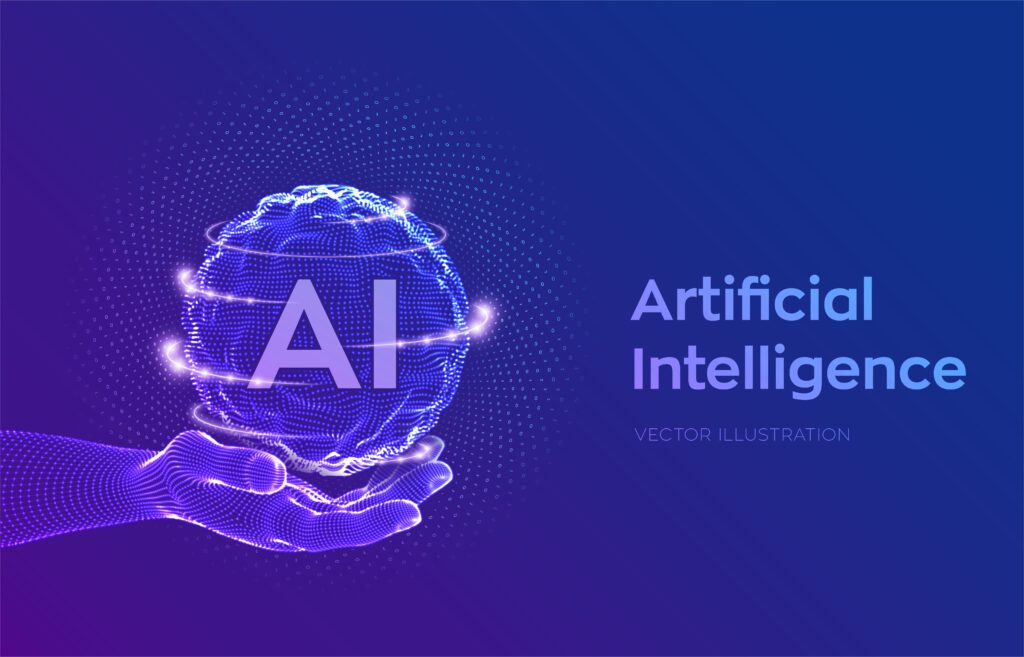
In clinical trials, data is collected, organized, and evaluated to accurately diagnose a particular disease and make its treatment designs accordingly. When AI stepped into the industry, clinical trials started arriving at the results sooner than before. Hospitals began to offer result-driven facilities for clinical trials. AI checks the bioactivity of each patient through neural networking.
Haven’t you ever thought of prior trials of vaccines before making them available to the public? These developmental drugs need candidates to test before giving the drug the green signal to be available for all. Well, which candidate is eligible and which one is not is done through various medical tests. This is implemented by AI today. AI has made this hectic procedure comparatively easier and cheaper. These clinical trials are increasing with the help of AI and have become less time-consuming than before.
Future Prospects of Artificial Intelligence in Healthcare
Though AI adoption in healthcare has some challenges, such as lack of trust in results, knowledge, and experience to use those robotic arms for surgery, a lack of information that such healthcare gadgets do exist, and the urgent need to meet specific requirements. However, the adoption of AI in healthcare has already brought tremendous benefits to the industry and its stakeholders.
Al has already improved the workforce and the staff’s operations in medical and nonmedical fields in the industry. It is helping the industry with repetitive tasks, supporting users to get to the queries faster, helping patients and doctors to reach out to each other, improving patients’ and doctors’ experiences, reducing pain, implementing automation, and maintaining proper records for further use.
Therapists, pathologists, cardiologists, radiologists, patients, payers, researchers, physicians, scientists, and clinicians benefit from the use of AI in healthcare. And in the near future or so, its applications are going to increase by many folds.
AI is assisting in the development of pharmaceuticals, diagnostic procedures, and overall healthcare operations. However, based on current technology, it is evident that AI will soon become a vital element of day-to-day health care tasks, benefiting both patients and medical institutions.
Article Sources:
- https://www.novatiosolutions.com/10-common-applications-artificial-intelligence-healthcare/
- https://www.techtic.com/blog/applications-of-ai-in-healthcare/
- https://intellipaat.com/blog/artificial-intelligence-in-healthcare/
- https://www.insiderintelligence.com/insights/artificial-intelligence-healthcare/
- https://www.technologyreview.com/2016/02/04/246748/ibms-automated-radiologist-can-read-images-and-medical-records/
Learn More:
Top Bioinformatics Books ↗
Learn more to get deeper insights into the field of bioinformatics.
Top Free Online Bioinformatics Courses ↗
Freely available courses to learn each and every aspect of bioinformatics.
Latest Bioinformatics Breakthroughs ↗
Stay updated with the latest discoveries in the field of bioinformatics.
Anjali Soni is a Scientific Content Writing Intern at CBIRT. She's a student at Global Engineering College at Jabalpur, a writer by day, and a reader by night. She loves to listen to soft music and breathe in cold spring evenings alone under the tree, lost in her own world. Read, eat, travel, and enjoy are all that she wishes for in Life.

